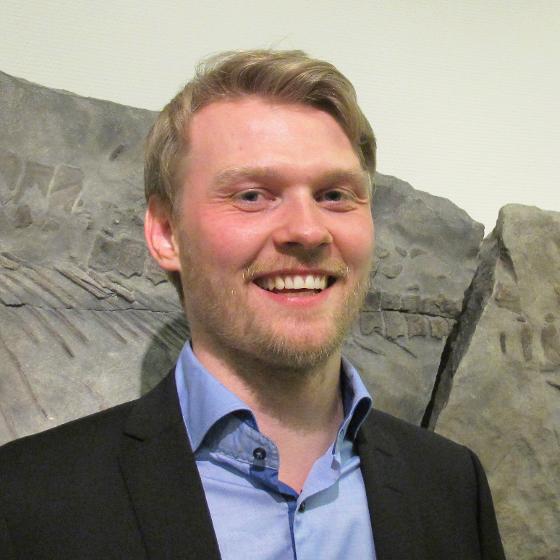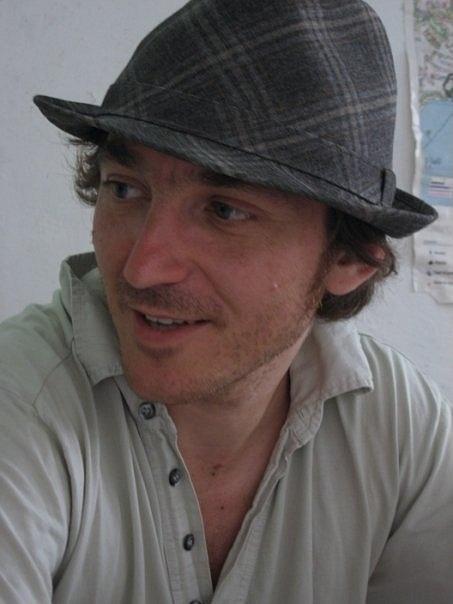Tromsø
<p>EU/EEA + Swiss applicants: 1 March</p><p>Non-EU/EEA applicants: 15 November</p>
Regulation patterns and molecular processes in living cells are fundamental to explain the success of organisms in different life stages, environmental conditions and ecosystems. Comprehensive knowledge of genes, their organisation in the genome and their products in the cell is the key to describe prokaryotic and eukaryotic life forms. If you want to explore the molecular and cellular principles of life and its interface with environmental factors, then seek an education in molecular environmental biology.
This study programme requires compulsory attendance to the introductory meeting. See this web page for more information.The MSc in Molecular environmental biology focuses on the molecular analysis of plants and microorganisms. Research areas cover a broad range of contemporary research topics ranging from functional plant and microbial molecular biology and plant/microbe interactions to bioinformatic analysis and modelling. The common theme of our discipline is understanding interactions within and between cells and between organisms and their environment at a molecular level. The Master students will be offered an opportunity for a molecular study within one selected field of research and the participation in an ongoing research project among the following focal areas:
- Analysis of molecular signalling and transport processes within and between individual plant and bacterial cells
- Biochemistry and cell biology of parasitic plants and the interaction with their hosts
- Environmental and developmental regulation of secondary metabolism in plants
- Communication and interaction of plants and microorganisms with each other and with the environment.
- Diversity and function of microbial communities involved in biodegradation of environmental pollutants
- Production and enzymatic degradation of plant biomass for bioenergy
- Implementation of bioinformatic approaches for the topics above and beyond
During the master study the students will be given the opportunity to choose from a variety of different courses applying modern methods of experimental molecular biology and bioinformatics for the study of plant and microbe systems. All courses are designed specifically to prepare the candidates for their master’s thesis. Also, the active participation in common seminars and courses are expected as an important part of scientific training.
For more information about the research group see: Microorganisms and Plants research group.
Recommended elective courses autumn:
- BIO-3018 Environmental Molecular Genetics - 20 ECTS
- BIO-3805/3810 Individual Special Curriculum - 5/10 ECTS
Recommended elective courses in the spring:
- BIO-3118 Microscopical imaging Techniques - 10 ECTS
- BIO-3027 Scientific Programming with Python in the life sciences - 10 ECTS
- BIO-3805/3810 Individual Special Curriculum - 5/10 ECTS
Relevant courses offered at UNIS:
- AB-332 Arctic Marine Molecular Ecology - 10 ECTS
- AB-327 Arctic Microbiology - 10 ECTS
Candidates that complete a master’s degree in biology in the discipline Molecular Environmental Biology will have advanced knowledge in biology and in the following topics:
- Intra and interspecies communications and molecular interactions.
- Functioning and dynamics of microbial communities in challenging environmental situations.
- Secondary metabolites in microbes and plants, their biological functions and applied aspect.
- Modelling of metabolic pathways and other biological processes.
The Master’s degree in Biology will allow you to qualify for different career paths and prepare you to step into a professional role or to apply for a PhD.
A Master of Science degree in Biology will prepare you for a wide range of jobs, in both public and private sectors, including research, resource and nature management, administration, consulting and the teaching profession.
The master thesis can play an important role to establish your domain of expertise and to showcase acquired technical and soft skills. Also, it can be very important in building scientific and professional network, that will be a support in your future job search.
| Term | 10 ects | 10 ects | 10 ects | |||
|
Compulsory safety courses at semester start (no ECTS) |
||||||
| First semester (autumn) |
Elective course (10 ECTS) |
Elective course (10 ECTS) |
||||
| Second semester (spring)*** |
Animal exp. (5/6 ECTS)** Elective course (up to 10 ECTS) |
Elective course (10 ECTS) |
||||
| Third semester (autumn)**** | ||||||
| Fourth semester (spring) | ||||||
|
* BIO-3529 is 5 ECTS spread over the two first semesters and conducted partly digitally to accommodate students going to UNIS. ** BIO-3503 Aquatic Animal Welfare (only for projects that require use of live aquatic organisms) or HEL-6320 Animal Experimentation for Researchers (only for projects that require use of live birds or mammals). Please note that there is an own application deadline for HEL-6320. *** Possibilities to take single (intensive) courses at UNIS from mid-March. **** Possibilities to take single (intensive) courses at UNIS. |
||||||
See the study plan below for more info about the program structure.
Admission to the master’s program in Biology requires a bachelor’s degree (180 ECTS) or equivalent qualification, including a specialization in biological topics [i.e., biodiversity (zoology/botany), ecology, cell- and molecular biology, microbiology, physiology (animal/plant), biochemistry and bioinformatics] corresponding to a minimum of 80 ECTS.
Applicants must have a minimum grade average comparable to a Norwegian C (3,0) in the ECTS scale. The average grade is calcualted from the entire bachelore´s degree.
Applicants with education from non-Nordic countries must document English language proficiency. You will find more information of English language requirements here: https://en.uit.no/admission#v-pills-735946
Applicants with a degree in Agricultural, Fisheries and Aquaculture studies, Biomedical laboratory sciences ("Bioingeniør"), or Bachelor of Pharmacy, Medicine or Dentistry do not fulfil the admission requirements.
The Molecular Environmental Biology discipline in our Master’s program require additionally specific qualification requirement: applicants must have completed courses in basic and practical molecular biology corresponding to a minimum of 10 ECTS (BIO-2018 or equivalent) or can document hands-on molecular lab experience through a bachelor thesis.
Please contact the student advisor for more information about this.
More information on admission requirements:
General admission requirements-Master
Nordic applicants:
Online application is via Søknadsweb, application code 6023
EU/EEA + Swiss applicants:
Online application, application code: 7113
Non-EU applicants:
Online application, application code: 2079
How to apply for admission to UiT? Read more here
Several teaching and assessment methods are employed, including lectures, seminars, laboratory work, computer lab and field courses. These will vary from course to course.
Course examinations may be oral or written examinations, assessments of project work/ lab reports/field reports, often in combination.
Supervision of the project work that leads to the writing of the Master`s thesis will be given by faculty staff, sometimes in co-operation with an external supervisor.
The language of instruction and all syllabus material is English.
On successful completion of the degree programme, students may be qualified for admission to a PhD-programme in Biology at the UiT or elsewhere.
Students can undertake periods of studying at The University Centre at Svalbard (UNIS). Each discipline highlights relevant courses at UNIS under program description.
International exchange during an entire semester is not possible in the first year of studies due to obligatory courses in all discipline.
Stays abroad can take place as part of a master project in the third and fourth semester. Please consult the program study adviser for more information.
| Institute | Country |
|---|---|
| Johann Wolfgang Goethe University of Frankfurt am Main | Tyskland |
| University of Tours | Frankrike |
| Slovak Agricultural University in Nitra | Slovakia |
| University of Oulu | Finland |
| Leiden University | Nederland |
| University of Constance | Tyskland |
| University of Southern Denmark | Danmark |
| Aarhus University | Danmark |
| Wageningen University & Research | Nederland |
| Wageningen University & Research | Nederland |
| University of Freiburg | Tyskland |
| University of Nantes | Frankrike |
| University of Navarra | Spania |
| The University of Dublin, Trinity College | Irland |
| University of Algarve | Portugal |
| University of Tartu | Estland |
| Heinrich-Heine-University Düsseldorf | Tyskland |
| University of Kiel | Tyskland |
| Swedish University of Agricultural Sciences | Sverige |
| University of Hamburg | Tyskland |
| University of Helsinki | Finland |
| University of Iceland | Island |
| University of Copenhagen | Danmark |
| University of Vigo | Spania |
| University of Aberdeen | Storbritannia og Nord-Irland |
| University of Tasmania | Australia |
Krause, Kirsten
I want to understand how plants adapt to different environments and challenges. My previous work on cellular regulatory networks in the model plant spring meadowsweet has led me in recent years to explore the parasitic plant genus Cuscuta which feeds on the nutrients produced by other plants. The molecular mechanisms that the parasites use to adapt to the host and camouflage themselves so that the infection is not detected by the host plant may have biotechnological value and are therefore among the questions I hope to solve in my career.
In my further role as leader of the Graduate School "PHOTOSYNTECH" (2022-2030), a national educational platform for PhD students working within all fields of plant and algae sciences, I hope to be able to install my passion for research and innovation to early stage researchers.
Expertise:
Parasitic plants
Plastid genomes
Plant mucilages

Tveit, Alexander Tøsdal
I am a microbiologist with a PhD in microbial ecology from UiT, The Arctic University of Norway. I study how changes in microbial physiology can influence carbon cycling. Currently I am leading the projects Cells in the Cold (CECO) and Living on Air, as well as the research lab "Cells in the Cold laboratory" with financial support from Tromsø research foundation and the Research Council of Norway. See "Attachments" tab for CV.

Jaakola, Laura
Professor in Plant Biology
Karppinen, Katja
Associate Professor in Plant Biotechnology and Bioenergy, under ARC-Arctic Centre for Sustainable Energy. Co-leader of ABSORB-project. Current research interests can be found here.

Heiland, Ines
Prof. for Molecular Biology and Bioinformatics


